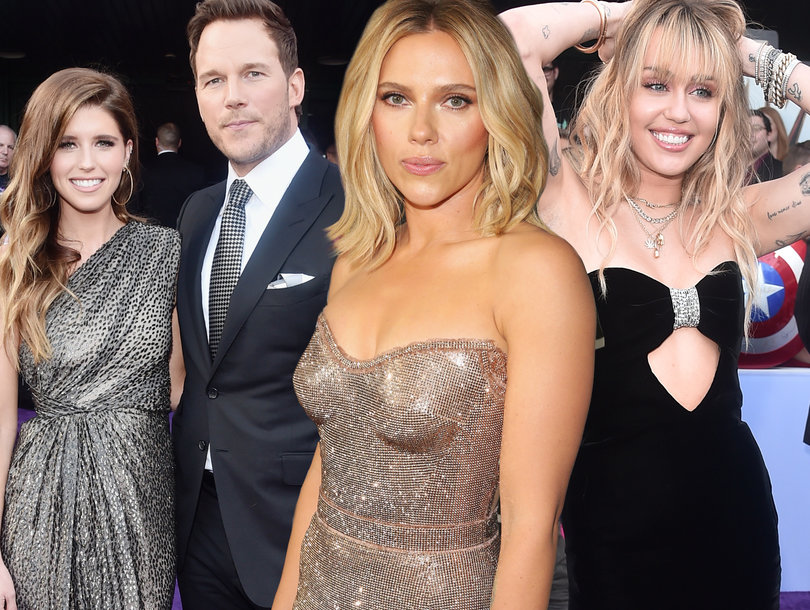Forget Thanos — the Marvel universe is under attack from cinematic Goliaths Martin Scorsese and Francis Ford Coppola.
But according to “Superman” director Richard Donner, the pair are just upset because Disney won’t give them jobs.
“Yeah it’s because nobody will hire them to direct those,” the 89-year-old joked when asked about the recent criticism of Marvel films.
In an interview with Empire, “The Irishman” director revealed he had tried and failed to watch some Marvel movies, declaring “that’s not cinema.”
“Honestly, the closest I can think of them, as well made as they are, with actors doing the best they can under the circumstances, is theme parks,” he continued. “It isn’t the cinema of human beings trying to convey emotional, psychological experiences to another human being.”
“The Godfather” director Francis Ford Coppola later echoed the sentiments, describing the movie industry’s push of commercialism over art as “despicable”.
Despite being nine and 13 years older than his fellow directors, Donner revealed he definitely watches the Marvel movies — although he admits this is partly because “I’m married to the woman who makes them”.
Indeed Donner — credited as being the director of the first modern super hero movie with 1978’s “Superman” — is married to Lauren Shuler, who produced all of the X-Men films.
Donner defended his peers’ right to criticize: “Everybody sees something different,” he said, but added smiling: “They are relatively old fashioned and all these young directors like myself are coming along and scaring them.”
After Scorsese and Coppola’s comments, some of the Marvel directors expressed their disappointment that they had failed to impress their idols.
“Martin Scorsese is one of my 5 favorite living filmmakers,” tweeted out “Guardians of the Galaxy” helmer James Gunn. “I was outraged when people picketed ‘The Last Temptation of Christ’ without having seen the film. I’m saddened that he’s now judging my films in the same way.”
“That said, I will always love Scorsese, be grateful for his contribution to cinema, and can’t wait to see The Irishman,” he added. “And I’m not saying religious zealotry is the same as not liking my movies, or in the same category. What I’m saying is I’m not fond of people judging things without actually seeing them, whether it’s a movie about Jesus or a genre.”
Joss Whedon, the man behind the first two “Avengers” movies, reacted as well — specifically calling out Gunn’s contribution to the MCU.
“I first think of @JamesGunn, how his heart & guts are packed into GOTG,” he said. “I revere Marty, & I do see his point, but… Well there’s a reason why ‘I’m always angry.'”
On Tuesday, Scorsese further clarified his comments in New York Times op-ed piece entitled “I Said Marvel Movies Aren’t Cinema. Let Me Explain” — but still stuck to his guns.
“Some people seem to have seized on the last part of my answer as insulting, or as evidence of hatred for Marvel on my part. If anyone is intent on characterizing my words in that light, there’s nothing I can do to stand in the way,” he wrote.
“The fact that the films themselves don’t interest me is a matter of personal taste and temperament. I know that if I were younger, if I’d come of age at a later time, I might have been excited by these pictures and maybe even wanted to make one myself.”
“But I grew up when I did and I developed a sense of movies — of what they were and what they could be — that was as far from the Marvel universe as we on Earth are from Alpha Centauri.”
He admitted that some Hitchcock films were also like theme park rides, but the things that keep audiences coming back to them 60 or 70 years later was not the thrills and shocks, but the emotions, character and performances.
“Many of the elements that define cinema as I know it are there in Marvel pictures. What’s not there is revelation, mystery or genuine emotional danger. Nothing is at risk,” he said. “The pictures are made to satisfy a specific set of demands, and they are designed as variations on a finite number of themes.”
“They are sequels in name but they are remakes in spirit, and everything in them is officially sanctioned because it can’t really be any other way. That’s the nature of modern film franchises: market-researched, audience-tested, vetted, modified, revetted and remodified until they’re ready for consumption.”
His personal beef, he pointed out, was that these giant tentpoles, as well as the move to streaming, were pushing out the need for independent theater.
He accepted that even he needed Netflix’s help to get “The Irishman” made, and into theatres. “Would I like the picture to play on more big screens for longer periods of time? Of course I would,” he wrote. “But no matter whom you make your movie with, the fact is that the screens in most multiplexes are crowded with franchise pictures.”
“There are some in the business with absolute indifference to the very question of art and an attitude toward the history of cinema that is both dismissive and proprietary — a lethal combination,” he concluded. “The situation, sadly, is that we now have two separate fields: There’s worldwide audiovisual entertainment, and there’s cinema. They still overlap from time to time, but that’s becoming increasingly rare. And I fear that the financial dominance of one is being used to marginalize and even belittle the existence of the other.”
“For anyone who dreams of making movies or who is just starting out, the situation at this moment is brutal and inhospitable to art. And the act of simply writing those words fills me with terrible sadness.”
Got a story or a tip for us? Email TooFab editors at [email protected].
View Photos
Getty
Every Must-See Photo from ‘Avengers: Endgame’ Premiere Red Carpet

